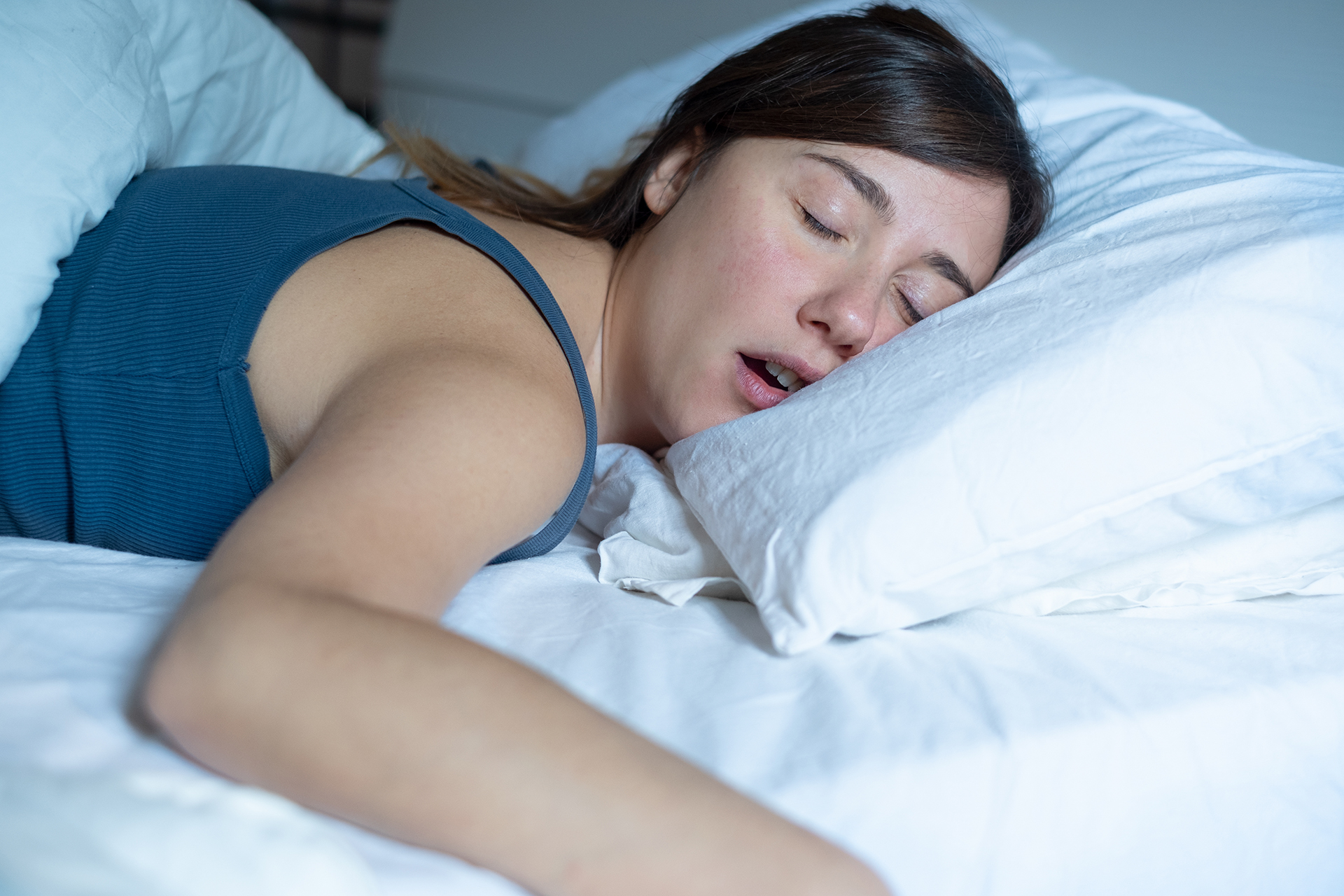Mouth taping is a practice that promotes nasal breathing during sleep, which may improve sleep...
Read More

Obstructive sleep apnea (OSA) is a condition in which you stop breathing during sleep because of a narrowed or closed breathing passage (airway). Adults with obstructive sleep apnea are more likely to be overweight. Common symptoms of obstruc- tive sleep apnea include snoring, stopping breathing during sleep, frequent awakenings during the night and difficulty staying asleep throughout the night. It is also common for patients who have obstructive sleep apnea to be tired and sleepy during the day. Obstructive sleep apnea can also have a bad effect on your heart and your blood vessels (arteries, veins and capillaries), which is also referred to as the cardiovascular system. In addition, this sleepiness can cause accidents at work, poor work performance and car crashes.
Several cardiovascular conditions can happen with untreated obstructive sleep apnea. For example, if you have obstructive sleep apnea, you are more likely to have high blood pressure (hypertension) or it may be difficult to control your blood pressure. Of people with hypertension, about 30% have obstructive sleep apnea. If you have obstructive sleep apnea, there is a 50% chance you also have hypertension.
Problems with the rhythm of your heart may occur such as atrial fibrillation (irregular heart beat) and bradycardia (slow heart rate). Patients with severe obstructive sleep apnea are four times more likely to have atrial fibrillation compared to those without the disorder. Not receiving treatment for your sleep apnea may make your atrial fibrillation difficult to control. For example, in patients who have atrial fibrillation cured with catheter ablation (a special treatment to the heart), those with untreated obstructive sleep apnea are 25% more likely to have their atrial fibrillation return.
Patients with obstructive sleep apnea are also more likely to have coronary artery disease. Coronary artery disease (also known as the hardening of the arteries) happens when the small blood vessels that supply blood and oxygen to your heart become narrow.
Narrowed coronary arteries can lead to heart attacks. If you have severe obstructive sleep apnea that is untreated, you are twice as likely to devel- op heart attacks in the future as those without the problem. In addition, up to 70% of patients admitted to the hospital because of coronary artery disease were found to have sleep apnea. If you have heart failure, obstructive sleep apnea can make it worse.
Also, people with untreated obstructive sleep apnea can develop heart failure. The chance of having obstructive sleep apnea if you have heart failure is quite high.
The reason why patients with obstructive sleep apnea develop heart disease is not exactly known. Obstructive sleep apnea causes you to have frequent pauses in your breathing; these pauses mean that you actually stop breathing and this causes you to wake up at night. When these breathing pauses happen, the oxygen level in your blood gets low. It is thought that the frequent bouts of low oxygen levels during sleep damages the blood vessels that supply the heart. Also with each one of the episodes, your body tells your heart to beat faster and your blood pressure to go up. Severe obstructive sleep apnea can also cause stress on your heart causing the heart to get enlarged. An enlarged heart can cause the heart to get less oxygen and work less efficiently.
What happens if my sleep study results are positive for sleep apnea? You should expect your study results in up to 15 business days from the time your sleep study was completed. The physician that ordered your sleep study will be calling to inform you of your study results. Otherwise, you should expect a telephone call from our sleep specialist to schedule a follow-up care consultation, only if your study results are positive and requested by the physician that ordered your sleep study. During a follow-up care consultation your treatment options will be discussed.
To schedule an appointment at one of Inspira Health's Sleep Centers near you, call (856)–853–2131
References: American Heart Association, Harvard Healthy Sleep, Sleep Foundation

Mouth taping is a practice that promotes nasal breathing during sleep, which may improve sleep...
Read More
Learn about how transcarotid artery revascularization (TCAR) compares to traditional treatments like...
Read More
Waking up in the middle of the night can be frustrating, but picking up your phone or trying to...
Read More
The material set forth in this site in no way seeks to diagnose or treat illness or to serve as a substitute for professional medical care. Please speak with your health care provider if you have a health concern or if you are considering adopting any exercise program or dietary guidelines. For permission to reprint any portion of this website or to be removed from a notification list, please contact us at (856) 537-6772